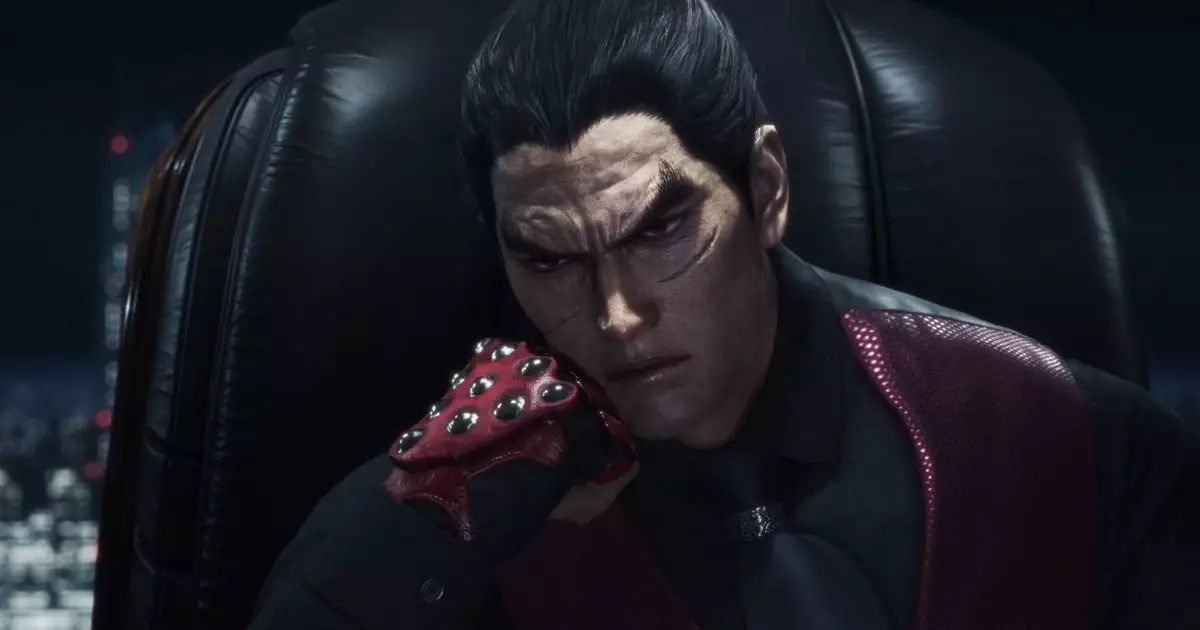Game development is an exhilarating yet harrowing endeavor, a balancing act where passion often teeters on the edge of burnout. The narrative of Katsuhiro Harada, the iconic director of the Tekken series, sheds light on the taxing pressures that can accompany game creation. In a recent discussion, he shared a personal story from the tumultuous release of Tekken 4 in 2001. That release did not meet the expectations set by its predecessors, and Harada’s experience reflects an often-ignored reality: the emotional and physical toll of creative work.
Harada’s tale isn’t just a glimpse into the gaming industry’s intricacies; it encapsulates the broader context of how stress manifests in creative roles. Through his story, we are prompted to consider how pressures to perform, innovate, and maintain audience satisfaction can lead to serious health issues. Harada’s condition—a puzzling loss of hair solely on one side of his body—symbolizes not just the physical manifestations of anxiety but the broader implications such pressure has on health. This isn’t merely anecdotal; it’s a reminder that the creative industries can sometimes lead to precarious situations where talent is pitted against overwhelming expectations.
The Personal Costs of Public Reception
The gaming community often shares an unspoken bond with its creators, but that connection can morph into ridicule when expectations go unmet. Harada’s reflections reveal a painful insight into the price of passion; he faced personal criticism and isolation, asserting that he had “not a single ally” during the rough patches leading up to Tekken 4’s release. This realization underlines a compelling notion—that the creators are often left alone to navigate the unforgiving waters of public scrutiny, especially in an industry where opinions can shift drastically over time.
The stark transition from the vitriol of the critics to the praise that came years later can illustrate a broader societal pattern: we often judge rigorously in the moment, only to look back with nostalgia. Harada points out that many are now ready to elevate Tekken 4 to a “masterpiece” status, but he attributes this to the filtered lens of time rather than the game’s genuine impact or quality. This dichotomy sheds light on a critical conversation about the retention of creative integrity amidst external pressures and expectations: should a game designer focus on the immediate satisfaction of critics, or prioritize their artistic vision?
A Legacy Forged in Challenge
Moreover, Harada’s narrative offers a profound lesson about resilience in creative endeavors. After the stress of Tekken 4, he distanced himself from Bandai Namco for a period before embracing the responsibilities tied to Tekken 5’s development. It serves as a reminder that taking a step back can be a necessary process for renewal and growth. Many creatives often fear taking breaks; they worry about losing relevance or momentum. Yet, Harada’s journey illustrates that sometimes, prioritizing mental health can offer an invaluable reset, allowing individuals to return with a clearer vision and renewed vigor.
Despite the hurdles he faced, Harada’s continued leadership in the Tekken franchise today is a testament to his ability to convert adversity into a platform for innovation. As he now embraces new titles, the narrative of his struggles stands as a foundation for the future of the series. His willingness to share these vulnerabilities serves not only to humanize him as a figure but also to validate the experiences of other creatives who might be struggling in silence.
Cultivating an Honest Dialogue in Gaming
The gaming industry’s fast-paced environment often breeds a culture of silence regarding mental health. Yet, Harada’s personal account opens the door for a more honest dialogue about the struggles faced by game developers. The industry has a significant opportunity to foster environments where creators can share their challenges without fear of judgment. By encouraging transparency, the gaming community can combat the stigma surrounding mental health, inspiring a culture where self-care is prioritized alongside creative output.
As we anticipate the next installment in the Tekken line-up, the story of Katsuhiro Harada serves as a powerful reminder that every game carries behind it the weight of human experience. The triumphs and tribulations of its creators shape the final product, weaving a narrative that connects players to the individuals behind the code. By acknowledging this shared humanity, gamers and developers alike can build a more resilient and supportive community—one that nurtures creativity while honoring the mental health of those who strive to entertain us.

